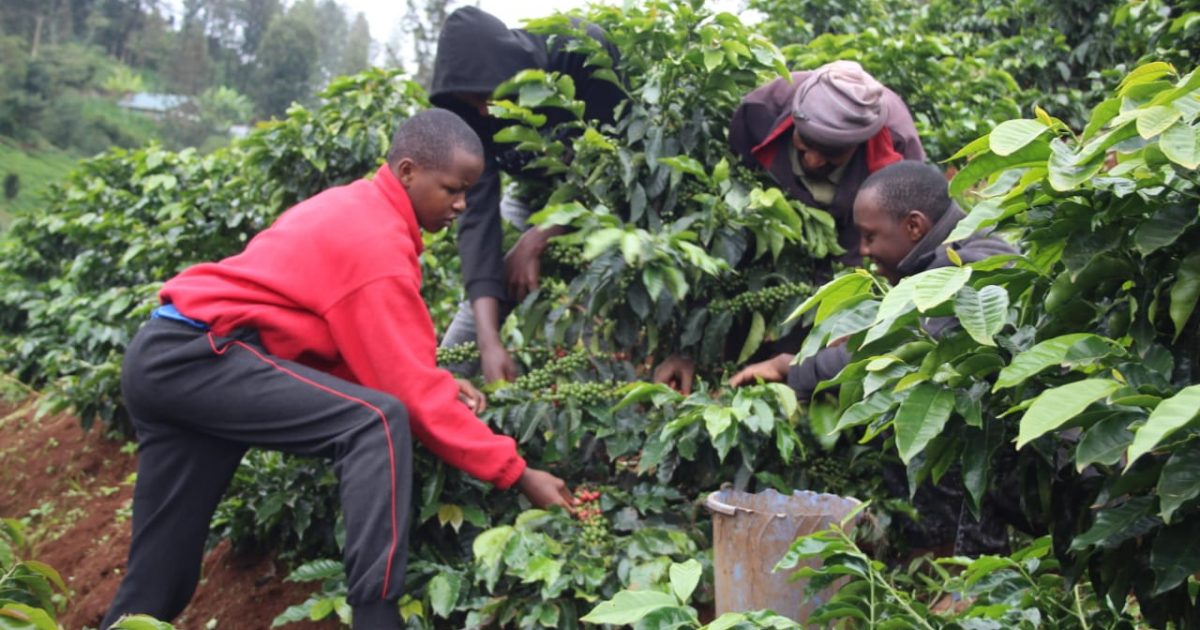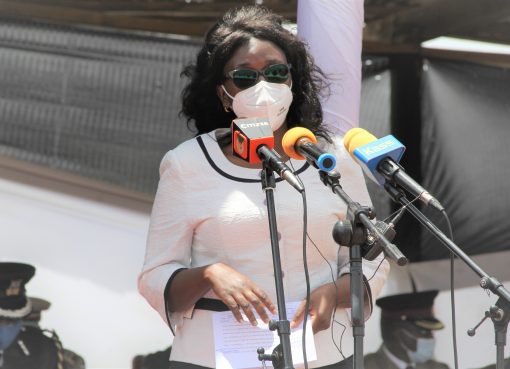One of the best ways to revamp coffee production in the country is by engaging young people in the sector.
The Head of the Boy Child Empowerment Forum in Muranga, Joseph Kibugi, has observed that production of coffee, especially in the county, has remained low since most farmers are aged.
Kibugu argued that some elderly parents were reluctant to engage their children in coffee farming, saying that without energetic people in the sector, production will continue to be low.
He said young people, who most of the time remain idling in shopping centres, needed to be trained and fully engaged in coffee farming.
In his interview with KNA Tuesday, Kibugi observed that scores of youths from coffee-growing areas have little knowledge about the crop and, as they claim, are unwanted in the sector.
“Coffee is one of the main cash crops in Muranga, but it’s unfortunate that young people are not fully utilised in the sub-sector,” stated Kibugi, while calling for the engagement of youth in the coffee value chain.
He continued, “As the government embarks on revamping the coffee sector, there is a need to bring in young people to the forums championed by the Deputy President, Rigathi Gachagua, aimed at reviving the coffee sector.”
In the recent past, Gachagua has been chairing forums, trying to bring in interventions towards revamping the coffee and tea sectors.
The provision of minimum guaranteed returns, Kibugi noted, will help coffee farmers increase production, and better returns from the cash crop will also attract young people to farm coffee.
He asserted that the youth, if supported through training, can turn around the sector to profitability.
Beginning this year, the Murang’a county government, in partnership with the Murang’a Farmers’ Union, embarked on an ambitious programme of registering and training youth in coffee farming.
The programme championed by Deputy Governor Stephen Munania was structured to ensure every local coffee society nominates three youths to get trained on the coffee value chain at the Ikundu coffee farm in Maragua.
In his input, the county Coffee Director, Dr. Irungu Maina, stated that the programme championed by the county government and the farmers’ union was more focused on improving coffee husbandry.
“Engaging youths in the programme has seen an increase in demand for coffee seedlings, and we hope that in the near future, coffee production in this region will be high,” he added.
Maina divulged that the County Government plans to spend Sh800 million in five years to support coffee farming.
Earlier this year, Governor Irungu Kang’ata released Sh80 million to seven coffee societies to assist in the refurbishment of factories.
The chairman of Ngutu coffee factory in Mathioya, Evans Mucheke, speaking to KNA on the phone, stated that the management of his factory has allowed a number of youth to establish a coffee nursery as a way of encouraging them to penetrate the sector.
“We allowed the youth to establish their coffee nursery after they said they were interested after they attended training at Ikundu Farm,” said Mucheke.
One of the local coffee farmers, Joseph Kamande, blamed the government for failing to firmly address challenges sabotaging coffee farming, saying young people fear getting engaged in a poor-performing sector.
He noted that if bottlenecks affecting coffee farming in the country are adequately addressed, youth will see a reason to invest in the sub-sector.
“The cartels, who for a long time have exploited farmers, need to be removed and the marketing of coffee be done openly so the income solely benefits the farmers,” said the 70-year-old farmer.
Kamande further said there was a need for the parents to consider subdividing their land with the children to ensure continuity in coffee farming.
“It is absurd that the parents, despite a lack of energy to attend to the crop, are struggling with the pump spraying instead of encouraging their children to take up the responsibility of tendering coffee bushes,” said Kamande.
By Bernard Munyao




